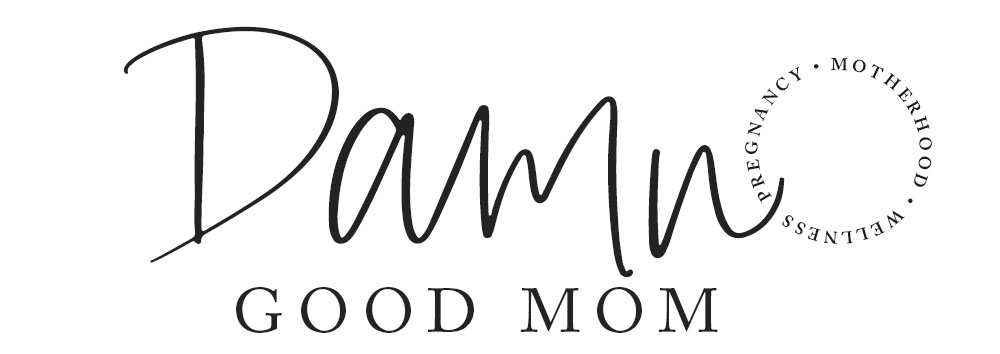How many times has the alarm clock gone off and you really didn’t want to move?
Maybe your loving child kept you up all night. Maybe you have housework that kept you up past midnight. Whatever the reason, you didn’t get enough sleep and now it is time to go to work.
You sigh because if it weren’t for all the bills that you know need to get paid, you’d roll right over. But like the responsible superwoman that you are, you hit snooze a few times and eventually get out of bed and go to work.
Unfortunately, you didn’t get the sleep you needed to start the day strong, so you choose sugar and caffeine to help you survive the day. But neither are adequate replacements for sleep and you find yourself needing a midday nap.
What do you do?
Before I share some options, I’ll first share why you should care about getting the sleep you need.
7 REASONS MOMS NEED SLEEP
Insufficient sleep can influence your physical and mental health. When you don’t get the proper amount of sleep, you can feel it in your body. Your productivity, energy levels, and creativity all decreases; you are more likely to get sick and feel less happy. Also, lack of sleep can make you irritable and more likely to make errors at home and at work. None of these effects are beneficial for you, your employer, or the clients or customers you serve.
If you can rearrange your schedule, to get the recommended 8 hours of sleep, do it. Here are the benefits of getting a full night’s rest:
- Better physical immune health
- Better mental health and concentration
- Increased memory, focus, and learning ability
- Decreased stress
- Increased feeling of happiness
- Increased productivity
- Decreased hunger and decrease in weight gain (Source)
HOW TO GET MORE SLEEP
It is recommended that adults get 7 to 8 hours of sleep nightly. Eight hours of uninterrupted sleep for any mom would be AMAZING!
Many of us have heard this recommendation before but when I read this advice recently, I laughed. Especially, since I’m a new mom breastfeeding around the clock. If you chuckled at the last sentence too, I feel your pain!
If eight hours of sleep is fairy tale talk for you, try these methods to get the most out of the hours you sleep:
- Sleep lying on your back
- Sleep on your side in fetal position, with a pillow between your knees
- Remove electronics from the bedroom
- Sleep in darkness or use blackout shades
- Avoid caffeine before bedtime
- Create a bedtime routine for yourself
Resource: Tips to Help Fix Your Sleep Schedule
If all else fails and you still feel sleepy at work, consider taking a nap, on the job. Before you call me crazy, and click to another page, let me explain. (And no, I’m not trying to get you fired!)
Napping at work
Next time you get caught napping at work, explain to your boss that sleeping at work is beneficial! Just kidding, never let your boss catch you sleeping on the job.
I’m not trying to get you fired.
Sources like this one, report that taking naps at work increases productivity, and what boss doesn’t want a more productive employee? Sources also suggest 20-26 minutes of sleep or napping, is enough time to re-energize and boost your energy. You see, using your lunch breaks to power nap can be beneficial.
Employers are making it easier for employees to sleep on the job
Power naps can improve your productivity, decrease stress, and increase focus. Many employers are beginning to recognize the benefits of naps and have invested in nap rooms and sleep pods. Employers care about your sleep because as this source writes “Sleep deprivation is the same as working drunk.”
How to Nap at Work Effectively:
- Use the alarm on your phone to ensure you don’t oversleep. I’ve gone to sleep in my car, on a lunch break, without setting an alarm, and easily slept through more than just my break. You don’t want this to happen to you.
- Choose a safe place to nap.
- Nap after you eat your lunch.
Sleep Science
My background is in psychology and clinical chemistry, so I’m extremely intrigued by how the body works. Here are some great informative articles on sleep and circadian clocks:
- The Nobel Prize in Medicine Goes to Your Circadian Clock
- NIH: Circadian Rhythms
- What Is Sleep: A Dynamic Activity
What I think I learned
- Sleep happens in cycles that are regulated by the circadian clock.
- This clock, also called the biological clock, regulates many activities of our bodies, not just sleep; it is found in individual cells and functions in cycles.
- These circadian cycles called circadian rhythms determine our sleep patterns which is largely controlled by our genes, light exposure, and temperature.
- The clock can be influenced by shift work, jet lag, poor diet, and caffeinated drinks, like our beloved coffee.
- The study of circadian rhythms is called chronobiology! Who Knew?!
Take Away:
- Sleep matters for physical and mental health.
- Lack of sleep can be the equivalent of driving drunk.
- Professionals recommend we try to get at least 7-8 hours of sleep.
- Employers are beginning to recognize the importance of sleep, some even provide spaces for napping on the job.
- Even if your employer doesn’t provide napping time, you can use your breaks to nap and re-energize, for increased productivity.
Related Posts + Resources:
The Benefits of Napping at Work
Balance Work and Life Through Better Sleep
The Nobel Prize in Medicine Goes to Your Circadian Clock
Feeling Tired for No Reason? Time to Reset Your Circadian Clock
Have you taken naps at work, during your breaks? If so, do you feel better after your power naps?






